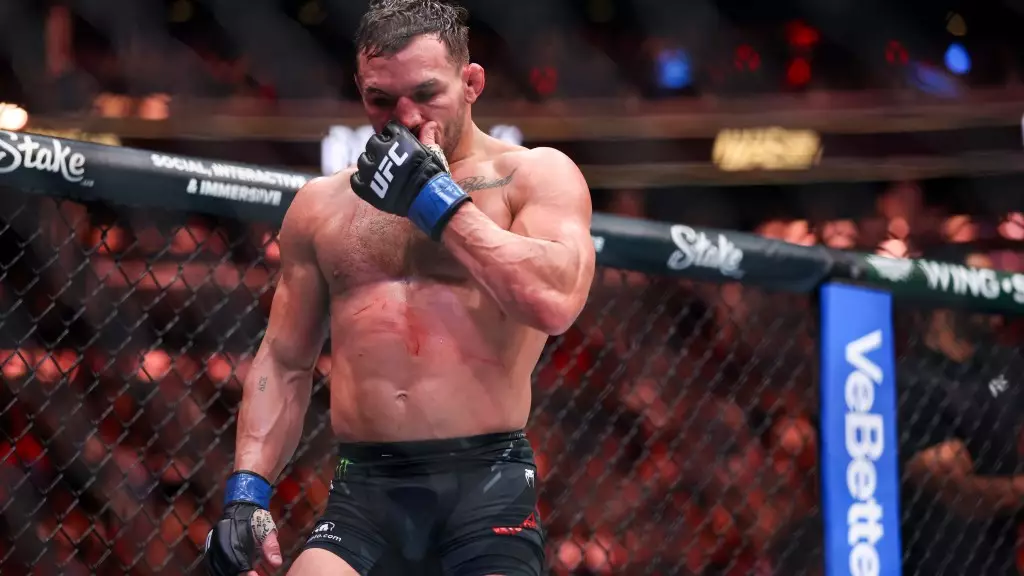Michael Chandler’s career in the UFC has sparked an ongoing dialogue regarding his overall potential as a fighter. Once a formidable champion in Bellator, Chandler’s transition to the UFC has been met with mixed results, leading observers like Eddie Alvarez to opine that the fighter has yet to tap into his vast reservoir of skills. As fans and analysts alike scrutinize Chandler’s performances, it begs the question: What factors contribute to this perceived underperformance?
Since his entrance into the UFC in 2021, Chandler’s record of 2-4 raises eyebrows among supporters who expected to see a seamless ascent toward title contention. While he has participated in some high-octane clashes that will remain etched in fight fans’ memories, results have not favored him as he had hoped. Each bout serves as a reminder of Chandler’s talent but also highlights the disconnect between potential and performance, a narrative that Alvarez finds particularly troubling.
Eddie Alvarez, who faced Chandler twice during their reigns in Bellator, offers a unique perspective on the situation given their competitive history. Alvarez’s commentary sheds light on Chandler’s capabilities—he is well aware of the champion’s grit and tenacity. His frustration, which mirrors that of many fans, stems from Chandler’s apparent reluctance to utilize his wrestling prowess effectively. Alvarez emphasizes that being equipped with a diverse skill set is insufficient without the strategic application of those tools inside the octagon. This sentiment echoes a broader concern in combat sports: fighters often don’t adapt their game plans to harness their strengths during competition.
Alvarez further articulates that the onus lies with Chandler himself, suggesting that psychological barriers or strategic missteps might inhibit his ability to fight to his fullest. Oftentimes, fighters can become sidetracked by their opponents’ styles or succumb to the pressures of high-stakes bouts, leading them to stray from their natural game. As Chandler continues to battle elite competition, the question remains whether he will rediscover the aggressive, wrestling-heavy approach that once defined him or continue to veer away from it.
Despite Alvarez’s criticisms, he has not closed the door on a future rematch with Chandler, although he acknowledges that this ambition clouds realistic expectations, especially within the UFC framework. He proposes that a trilogy bout under the Bare Knuckle Fighting Championship (BKFC) could be more aligned with their aspirations, and perhaps allow both fighters to showcase the best versions of themselves. This perspective underscores a potential shift in how fighters might explore different promotional avenues to revive their careers.
Michael Chandler’s journey through the UFC spotlight casts a long shadow filled with potential yet accompanied by disappointment. Eddie Alvarez’s observations serve as a powerful reminder that in the world of mixed martial arts, the players’ choices within the ring are as critical as the skills they bring to the fight. For Chandler, the road ahead demands a recalibration of strategy, a renewed focus on strengths, and perhaps a calculated risk in exploring new competitive environments. Only time will reveal if he can rise to the occasion and fulfill the promise that so many believe he holds.

